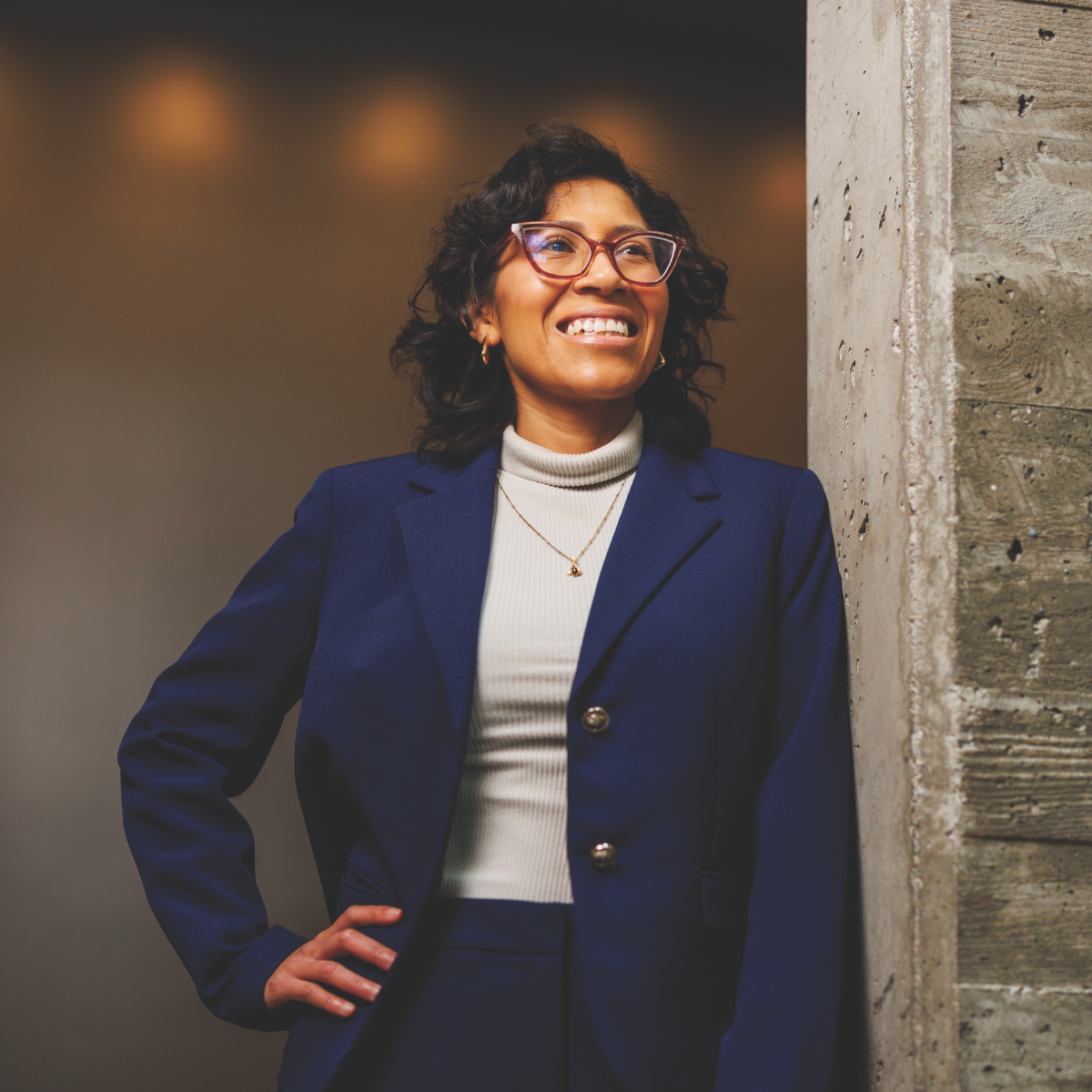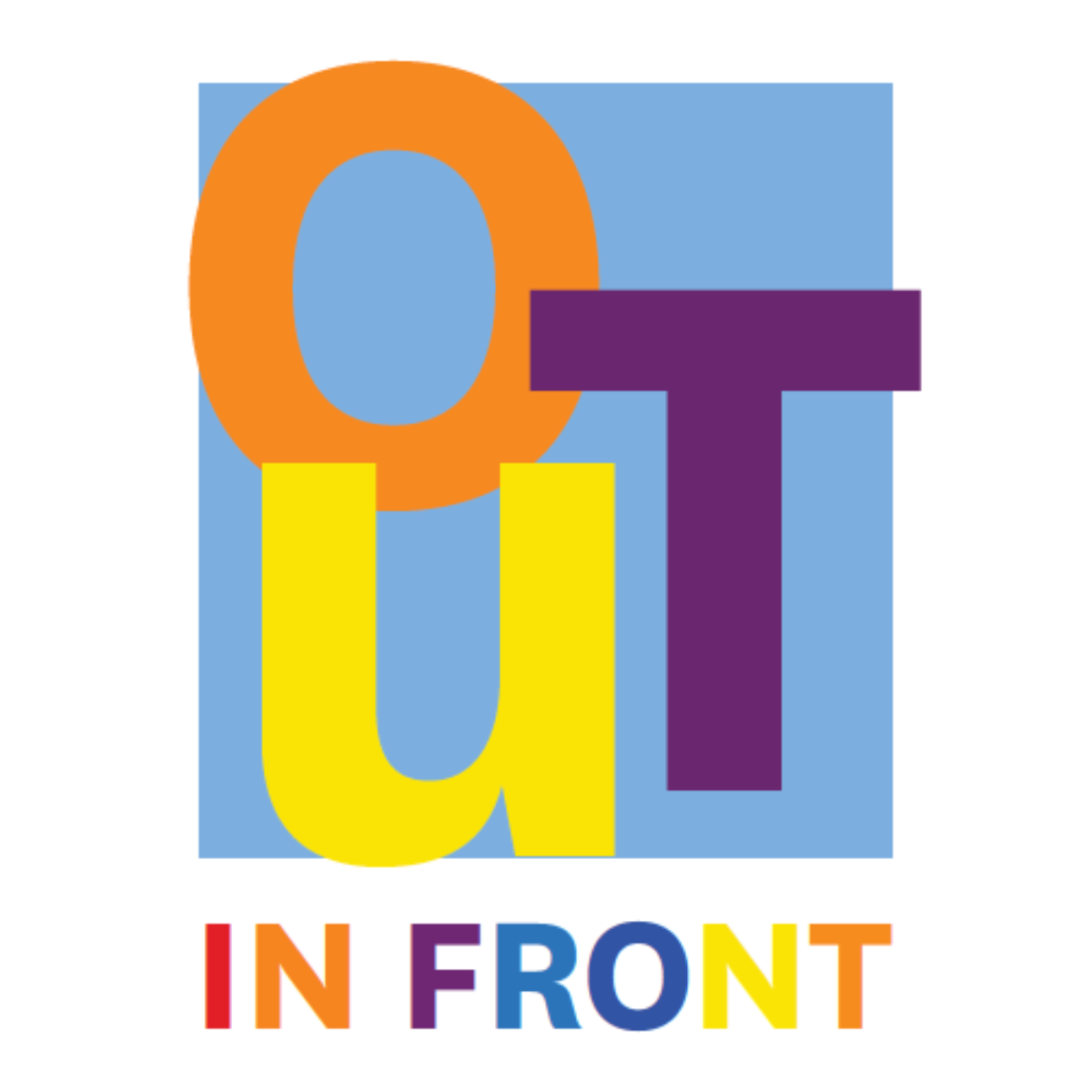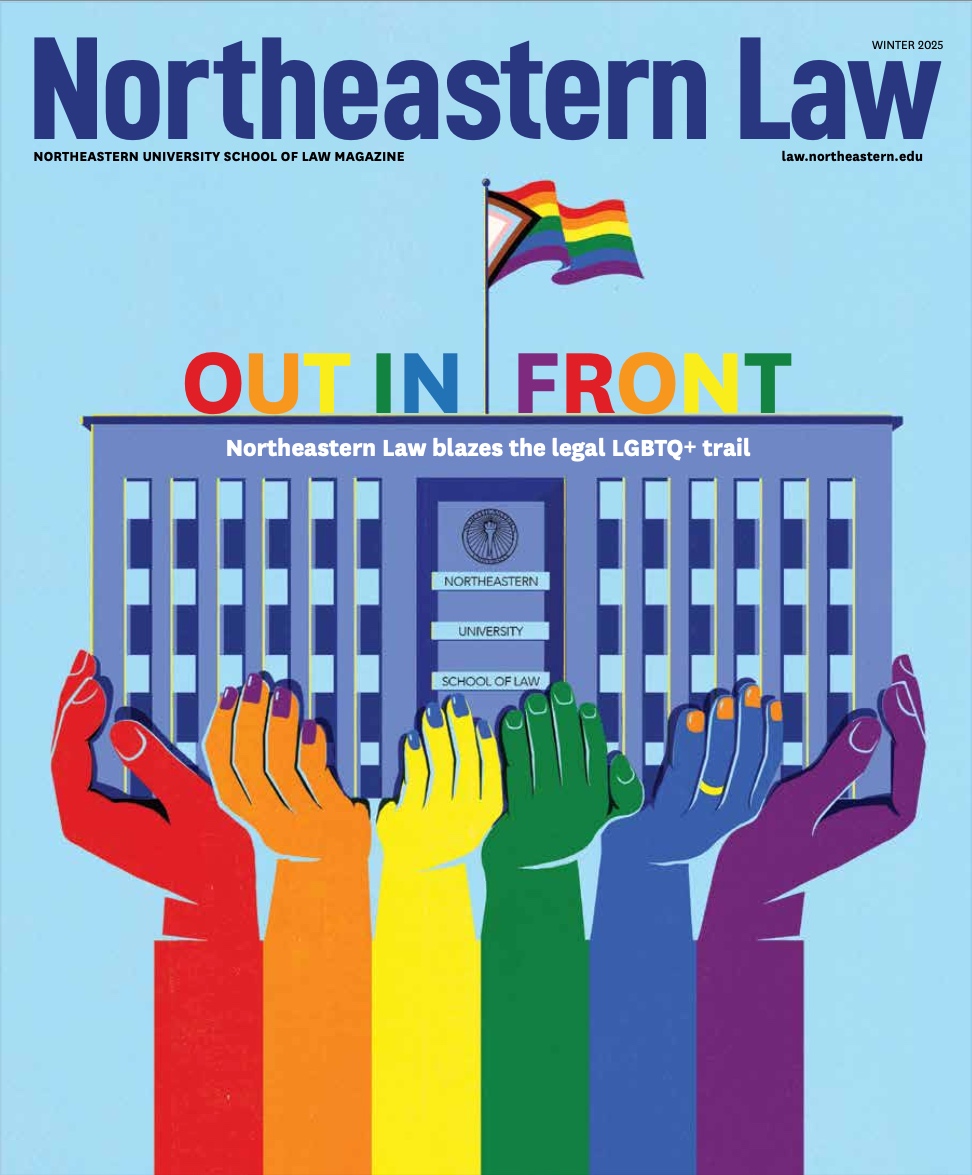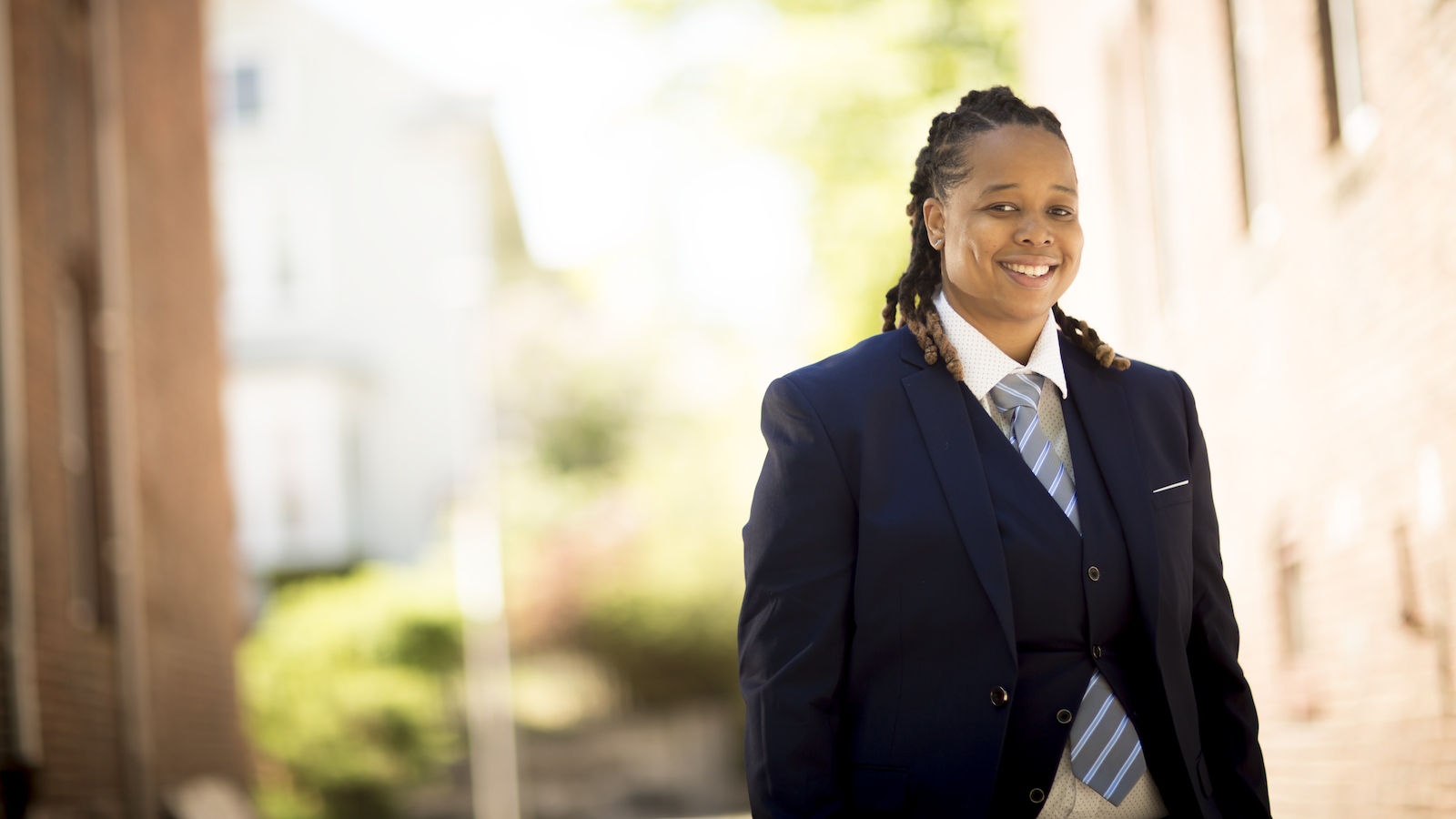
Personal Passions, Professional Pursuits
Graduates reflect on the paths — sometimes winding, sometimes direct — that led them to champion environmental and climate justice.
BY ANDREW FAUGHT
In his second State of the Union address, President Joe Biden highlighted the threat of climate change. “Let’s face reality. The climate crisis doesn’t care if you’re in a red or blue state. It’s an existential threat,” said Biden in February. “We have an obligation, not to ourselves, but to our children and our grandchildren to confront it.” What can lawyers do in confronting the literal tsunamis that have already hit, with more heading our way? A lot. Northeastern Law graduates are bringing lawsuits to protect the environment and combat fossil fuel emissions. They’re connecting the climate crisis to social, racial and environmental issues to protect low-income people and helping corporations do the right thing when it comes to environmental regulations and compliance. And they’re heading government offices charged with creating and enforcing regulations that respect and protect human beings and the planet. Here are the stories of five graduates whose unique life experiences fuel their professional passions.
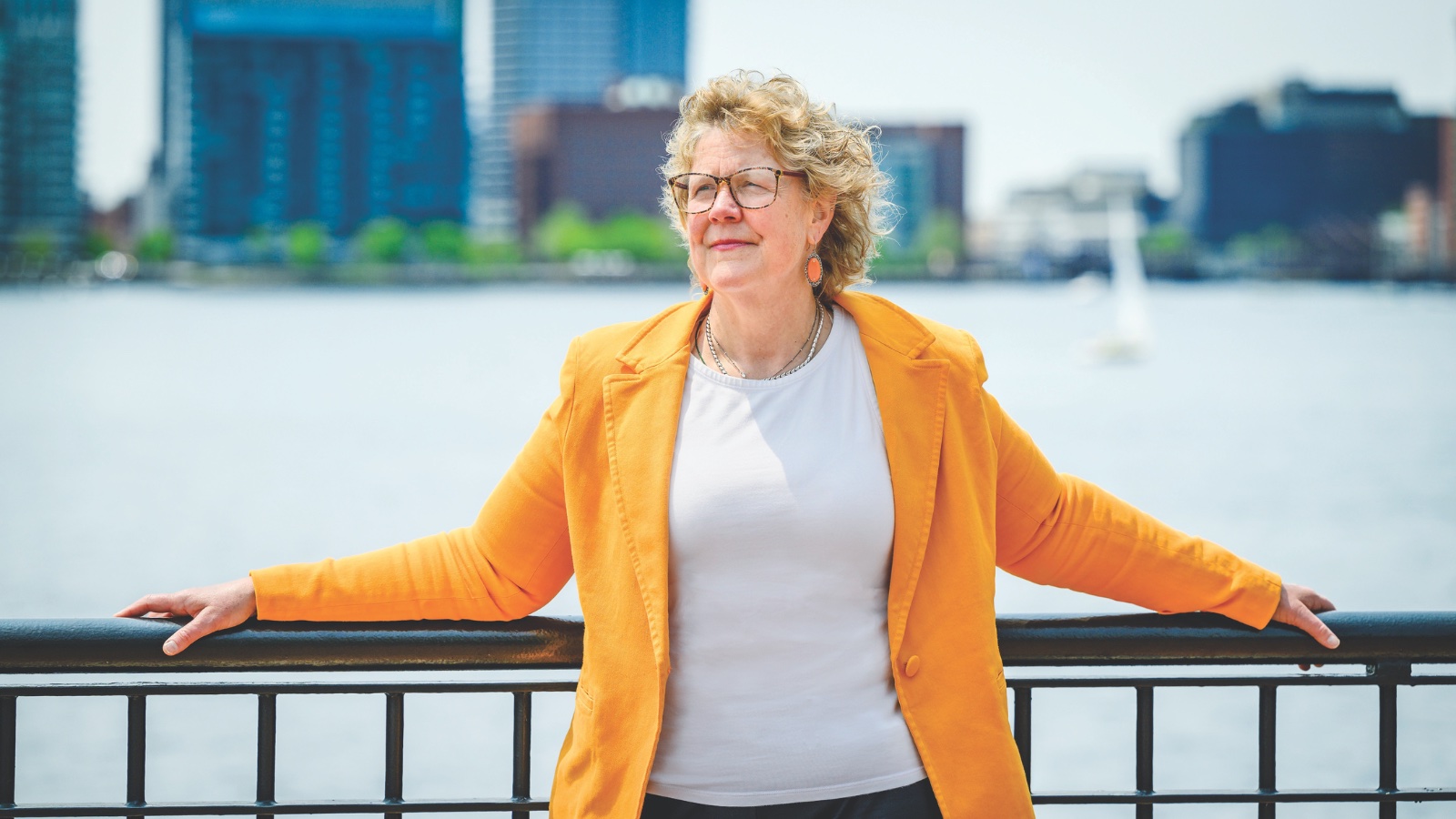
Melissa Hoffer ’98, Climate Chief, Commonwealth of Massachusetts
Photo by David Leifer
My father knew the value of the land, the value of clean water, and he raised me with a great deal of regard and respect for the natural world,” says Melissa Hoffer, who grew up in southeastern Pennsylvania. “I’ve carried that with me throughout my life.”
Now, Hoffer is helping lead the fight against climate change. In Massachusetts, she has been tapped by Gov. Maura Healey ’98 as the state’s inaugural climate chief, a cabinet-level position that’s the first of its kind in the nation. To take the job, Hoffer gave up a powerful role as principal deputy general counsel at the Environmental Protection Agency. This is not the first time Healey has looked to Hoffer as a valued partner: as Massachusetts attorney general, Healey chose Hoffer to serve as chief of her Energy and Environment Bureau. Now, as climate chief, Hoffer is charged with ensuring that climate change is factored into “all relevant decision-making” in every state agency in Massachusetts.
For example, worldwide, buildings are responsible for 39 percent of energy-related carbon emissions, according to the World Green Building Council. One way to respond is green banks, which are public or semipublic financial institutions that help speed up the introduction of clean energy technologies. “We recently established the Massachusetts Community Climate Bank, a green bank focused on decarbonizing buildings for low-income residents,” Hoffer says. “That’s a tremendous step forward for us in using an innovative financing tool to leverage federal funds and private sector funding to advance key emissions reductions and benefit disadvantaged communities.”
Hoffer taught high school social studies in San Francisco before deciding to transition to environmental law. In the classroom, she routinely infused her lessons with environmental themes, because “they’re powerful tools to help people understand where their drinking water comes from and where their food comes from, and how the health of the environment is inextricably linked to the health of our communities and families.” Hoffer’s focus on young people inspired another new initiative: a Youth Climate Council will advise her office on policy matters. “We have a fantastic group of youths who are committed to these issues, and they should have a seat at the table with respect to decision-making that’s going to affect their futures,” Hoffer says. “We also want to provide an opportunity for these folks who are going to be the leaders of tomorrow to understand a bit more about the workings of state government.”
On her desk, Hoffer keeps a black, heartshaped rock. Her dad found it on a hike, and he gave it to his daughter many years before he died in 2021 at age 98. It helps focus Hoffer on the work at hand. “I keep this close to me at all times, because it reminds me to maintain an open heart,” she says. “It reminds me of my connection to all living things.”

Elizabeth Yeampierre ’83, Executive Director, United Puerto Rican Organization of Sunset Park
Photo by Bob Handelman
Growing up in Brooklyn, Elizabeth Yeampierre lived in what is known as an “EJ” (environmental justice) community — a federal designation signifying that residents of the area face heightened exposure to environmental hazards and an increased risk of related health problems. Several years ago, Yeampierre almost died of a bilateral pulmonary embolism, a condition she attributes to environmental hazards that afflict marginalized communities.
“Climate justice is the collective response of the frontline of the climate crises,” says Yeampierre, executive director of the United Puerto Rican Organization of Sunset Park (UPROSE), a grassroots group that represents Latinos and other immigrants in working-class areas of Brooklyn. “We know transition is inevitable, but justice is not, and so we operate at the intersection of racial and social rights, environmental and economic justice. We focus on the root causes of climate change and call for a transformation to a just, sustainable, community-led economy.”
When Superstorm Sandy hit in 2020, Yeampierre led UPROSE’s efforts to launch the Sunset Park Climate Justice Center. “The center stresses adaptation and mitigation to ensure we strengthen social cohesion in the face of recurrent, violent, disruptive weather events that will also release harmful chemicals stored in our industrial sector,” says Yeampierre, who helped double the amount of open space in Sunset Park. “We know that if we do not center social cohesion that families will be uprooted and displaced and lives will be lost.”
Yeampierre’s leadership in climate justice transcends the boundaries of Brooklyn. At the People’s Climate March Mobilization in 2015, she played a major role in persuading young people of color to participate and successfully proposed the adoption of the Jemez Principles for Democratic Organizing, which have since become the road map to building just relationships in the climate movement. She also served as the first Latina chair of the US EPA National Environmental Justice Advisory Council and as a member of the National Institute for Environmental Health Sciences Advisory Council. In the Obama administration, she was selected as the opening speaker at the first White House Forum on Environmental Justice, and in 2022, she was hailed as one of the 100 most influential people in climate policy by Apolitical.
Yeampierre’s activist sensibilities started at age 6, when her favorite uncle was walking her home from school. Neighborhood kids pelted her uncle with rocks, targeting him because he was gay, Black, mentally ill as a result of abuse, and unable to speak English. “I remember it vividly,” Yeampierre says. “I put my body in front of him, like I was going to protect him, and I told myself, ‘I will never let this happen to people when I grow up.’”

Reed Zars ’86 Founder, Environmental Law in the Public Interest
Photo by Matt Nager
It was on a trip through Wyoming’s Red Desert that a Tootsie Roll wrapper was siphoned out the window of his family’s 1962 Ford Falcon station wagon. “My mother stopped the car immediately and said, ‘You go and pick that up!’” Reed Zars recalls. “I didn’t have any shoes on, and she told me that I didn’t have time to get them on. So, I ran through the cactus in my bare feet to get that one wrapper.”
Decades later, Zars looks back on that moment as one of the “driving forces” propelling him to represent conservation groups fighting coal-fired power plants and strip-mining operations that began to sprout across western states in the mid-1960s through the late 1970s. From lessons learned from his homesteader grandfather about self-reliance, and with the enthusiastic support of his wife, Megan Hayes ’93, Zars has run a mostly solo law office, Environmental Law in the Public Interest, in Laramie, Wyoming, since 1992.
Over the past three decades, Zars has carved out a national reputation as one of the top go-to lawyers for environmental citizen-suit cases, often facing off against dozens of large firms representing huge corporations and utilities. “I’ve found that I don’t need a lot of staff and committee meetings to make a difference,” he notes. “Relying on trusted colleagues and my own reading and thinking has been the best combination for me.”
His approach works. He’s won billions of dollars in environmental controls and cleanup costs for his clients, including the Sierra Club and the National Parks Conservation Association, and in federal lawsuits against such corporate giants as Texaco, Conoco, PacifiCorp and Southern California Edison. In recent years, Zars has focused on Clean Air Act enforcement cases, targeting large power plants, refineries and cement plants for air pollution violations. “Nature and the environment are the underdogs in our world,” he says. “We have a responsibility to protect them.”
Zars has also branched out to insidious Clean Air Act violations perpetrated by manufacturers and installers of after-market “defeat devices” that bypass or eliminate emission controls. In some cases, the EPA has only had limited success in prosecuting and fining the companies responsible for selling the devices. In 2016, Zars stepped in to represent Utah Physicians for a Healthy Environment, filing the first-of-its-kind Clean Air Act citizen suit in federal court against the “Diesel Brothers,” who cavalierly showed how to remove catalysts and particulate filters from diesel trucks on their Discovery Channel show. After Zars successfully argued in court and won $850,000 in penalties and a permanent injunction against the defendants, he moved on to larger targets, including Tap Worldwide, an aftermarket parts company that is a subsidiary of Polaris Inc., and Harley-Davidson dealers.
“The injustices confronting our planet are much larger than candy wrappers blowing through the desert,” says Zars. “Those injustices are much larger than any lawyer can correct, but that has not stopped me from trying.”

Yana Garcia ’11, Secretary for Environmental Protection, State of California
Photo by Kevin Fiscus
In early August 2005, Yana Garcia took a spontaneous trip to New Orleans, her first visit to the city. Three weeks later, Hurricane Katrina devastated the region. The tragedy, Garcia notes, was revelatory. “It opened my eyes to the impacts of climate change and what that means when it’s layered on top of existing sociopolitical and economic inequities,” she says. “Katrina galvanized me to think about what these extreme weather patterns mean for communities of color.”
The tragedy would help shape her career arc. After earning her law degree, she litigated environmental cases as an attorney at Earthjustice. She then joined the California Environmental Protection Agency (CalEPA), where she served as assistant secretary for environmental justice and tribal affairs and deputy secretary for environmental justice, tribal affairs and border relations. In 2021, she moved over to the California Department of Justice to serve as a special assistant attorney general dealing with issues related to the environment, before returning to CalEPA after Gov. Gavin Newson tapped her for her current cabinet-level post.
As secretary of CalEPA, Garcia oversees the state’s efforts to fight climate change, protect air and water quality, regulate pesticides and toxic substances and — with shades of Katrina — advance environmental justice. More than 7,000 employees work for CalEPA across six boards, departments and offices in the state. “We’re facing unprecedented challenges as a state,” Garcia says. “We went from the driest three-year period on record to one of the wettest ones, and we’re moving rapidly to adapt to this sort of weather whiplash that is part of our new normal.”
The work is deeply personal for Garcia, who grew up in Berkeley and Oakland, California. Many of her relatives live in Puebla, Mexico, where they grow corn for animal feed. Climate change has in many instances contributed to heavy rains that harm crops by eroding soil and depleting soil nutrients. Garcia says she’s guided in part by the Seventh Generation Principle, an ancient philosophy that holds that decisions made today should result in a sustainable world seven generations into the future.
In a state that’s nearly 800 miles long, the environmental challenges are myriad. At one of Garcia’s favorite natural spaces, Lake Tahoe, smoke from 2021 wildfires — which were fueled by climate change — impacted water temperature and clarity. They’re the same waters, in more idyllic times, on which Garcia enjoys paddleboarding.
“We have some daunting tasks ahead, including addressing the water supply challenges posed by a climate that has already changed and turning our carbon-neutral economy into a waste-neutral economy,” she says. “These problems are decades in the making, and they won’t be solved overnight. But I fully believe that our state is on the right track.”
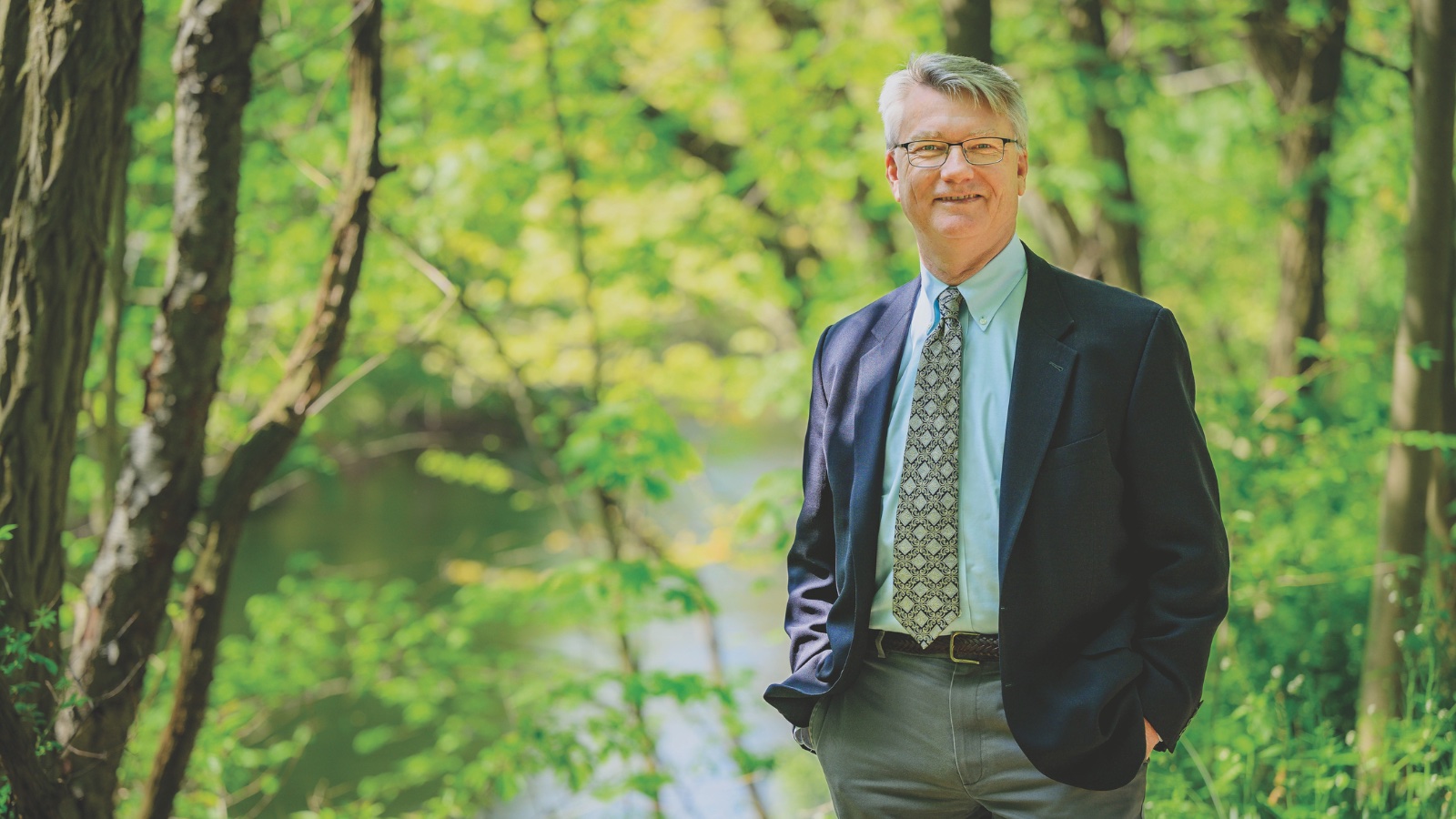
Robert Fitzgerald ’99, Counsel, Goodwin
Photo by David Leifer
Robert Fitzgerald thrilled to the Apollo moon missions as a curious kid growing up in California, waking up early to watch history in the making on television. The launches fueled his imagination in other ways, propelling Fitzgerald to earn an aerospace engineering degree. He became a structural engineer for Boeing and then moved on to an aerospace start-up. But the work required too many hours in the lab.
Fitzgerald’s professional calling turned to more earthly pursuits, efforts that help steward the planet’s health. “I like the intersection of science and policy, so that was really the point where the light went off as to environmental law,” says Fitzgerald, who earned degrees at the University of California, Los Angeles, and Yale before enrolling at Northeastern Law.
Since 1999, Fitzgerald has practiced at Boston-based Goodwin, working in the firm’s real estate transactional services and its environmental and energy practice areas. Over the years, he has developed a reputation as a top lawyer for clients who need advice on the risks associated with transactions involving contaminated sites and on the process and strategy for moving contaminated sites to regulatory closure. He’s quick to point out that many corporations want to do the right thing but need solid advice.
“My job is to counsel clients on their strategies to obtain necessary environmental approvals, maintain compliance and achieve sustainability objectives,” he explains. “The industrial, commercial, life science, real estate and other core sectors of our economy operate under complex environmental regulatory programs and need sound and practical compliance advice as those programs evolve. The sweeping environmental improvements realized under state and federal statutes, such as the Clean Water Act, Clean Air Act and CERCLA, are achieved through diligent compliance efforts on a facility-by-facility basis.
Fitzgerald devotes a significant amount of time to pro bono work, including Legal Pathways to Deep Decarbonization, a project with Columbia University’s Sabin Center for Climate Change Law. The project provides a “legal playbook” that identifies legal options for decarbonizing the economy. “It’s certainly very challenging to get consensus, not only in the US but around the world, to address what is really a global problem,” Fitzgerald says. “The playbook identifies hundreds of legal strategies for decarbonizing various sectors of the economy, including energy generation, transportation, agriculture, industrial and commercial operations, and construction.” Fitzgerald also volunteered with the Friends of the Herring River in Wellfleet on a project to reclaim nearly 1,100 acres of tidal marsh habitat by restoring tidal flow to the river, which over the years had been blocked by dikes and causeways.
“Sustained environmental improvement, including the restoration of compromised ecosystems, is the obligation of every generation to the next,” he says.
About the Author
Andrew Faught is a freelance writer living in Fresno, California. He has written widely on the issues and ideas of higher education.
Share
On the House
Gabriella Flick ’22 recognized by Massachusetts Supreme Judicial Court for more than 100 hours of pro bono service during her first year practicing law.
In International Human Rights for Whistleblowers, Northeastern Law’s Program on Human Rights and the Global Economy (PHRGE) has, for the first time, collated key information about the wide range of international venues and mechanisms that may be accessed by whistleblowers seeking support and vindication for their claims.


